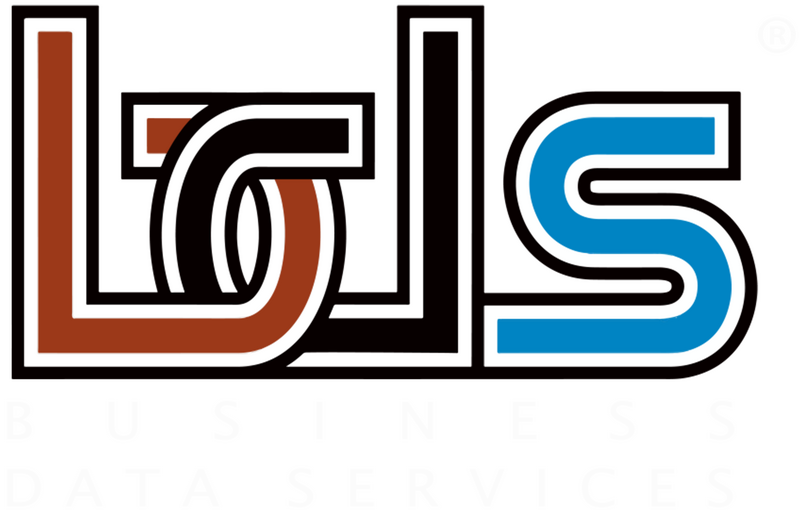 AI isn’t just some Silicon Valley science project anymore—it’s already sitting in your office. It’s in the emails you send, the spreadsheets you build, even the way you talk to clients. Used right, it can feel like hiring a sharp new assistant who never sleeps. Reports draft faster, data cleans itself up, and your team can finally knock things off the list instead of chasing their tails.
AI isn’t just some Silicon Valley science project anymore—it’s already sitting in your office. It’s in the emails you send, the spreadsheets you build, even the way you talk to clients. Used right, it can feel like hiring a sharp new assistant who never sleeps. Reports draft faster, data cleans itself up, and your team can finally knock things off the list instead of chasing their tails.
But here’s the rub: the same AI that makes your life easier is also making life easier for hackers. Remember those old scam emails full of typos and bad grammar? You could spot ’em a mile away. Now, thanks to AI, criminals write in polished, professional English that looks like it came straight from your best client. Add in voice cloning and fake videos, and suddenly “trust your gut” doesn’t feel as safe as it used to.
The truth is, AI isn’t all friend or all foe—it’s both. And small businesses in Kansas City need to understand that balance if they’re going to stay one step ahead.
Productivity Boost: The Upside of AI
Let me tell you how it really is—AI can be a workhorse if you point it in the right direction.
Think about all the small, nagging tasks that eat up your day: writing up client emails, building reports, sorting through spreadsheets. AI can knock those out in minutes. Some firms even use it to help draft proposals, polish marketing copy, or answer common client questions. It’s like having an extra set of hands that never takes a lunch break.
The beauty here isn’t just speed—it’s focus. When AI takes care of the grunt work, your people can get back to the high-value stuff: serving clients, closing deals, or finally tackling that project that’s been sitting on the back burner. Done right, AI can save you hours each week and cut down the stress that piles up when small tasks start to snowball.
But here’s the thing—just like you wouldn’t hand your checkbook to a stranger, you shouldn’t trust AI blindly. And that’s where the story takes a turn.
The Dark Side of AI: How Hackers Use It
Now, here’s where things get sticky. Hackers are just as excited about AI as the rest of us—and they’re using it to sharpen their tricks.
Remember those laughable scam emails from years back? The ones asking you to wire money to a prince overseas, full of typos and broken grammar? Those days are gone. With AI, cybercriminals can churn out emails that look like they came straight from your attorney, your banker, or even your biggest client. Clean, professional, and convincing. According to the FTC, phishing scams are evolving, and AI is making them harder than ever to spot.
And it doesn’t stop at email. With just a 10-second clip of your voice, hackers can now clone it well enough to fool someone on your staff. Imagine your bookkeeper getting a call that sounds exactly like you, asking for a wire transfer “right away.” Or worse—a fake video with your face and voice instructing someone to share sensitive client data. It sounds like sci-fi, but it’s happening today.
The problem isn’t just that the tech exists—it’s that it preys on human trust. One moment of hesitation, one “this sounds legit enough,” and a business can lose thousands of dollars or the reputation it took decades to build.
Don’t Trust AI Blindly
Here’s another truth that doesn’t get talked about enough: AI isn’t always right. Just because a machine spits out an answer with confidence doesn’t mean it’s accurate.
Think about it like reading a blog post, scrolling social media, or skimming the news—you don’t take every word as gospel, right? Same with AI. It can make mistakes, it can be biased, and sometimes it just flat-out makes things up. And if hackers are feeding the machine bad information, the problem only gets worse.
That means every business owner needs to keep the same rule of thumb: verify before you act. If AI suggests a next step, double-check it. If an email looks good but something feels off, pick up the phone. AI is a powerful tool, but it’s not a replacement for common sense and human judgment.
In other words—treat AI like a smart intern. It can do a lot of the heavy lifting, but you still need to check its work before you sign off.
Why This Is Dangerous for Small Businesses
Now, you might be thinking, “Alright Tito, but my team’s smart. We wouldn’t fall for that.” I hear you. But let me be blunt—this isn’t about intelligence, it’s about timing.
Hackers don’t need you to be careless every day—they just need you to slip up once. One rushed click between client calls. One quick “yes” when you’re distracted. That’s all it takes.
For small businesses, the stakes are even higher. A big corporation might survive a six-figure loss or a week of downtime. But for a CPA firm, a construction contractor, or a local insurance agency? One breach could mean lost clients, compliance fines, and your name dragged through the mud in the local news. According to the FBI’s IC3 division, business email compromise scams cost companies billions every year—and AI is only making them more convincing.
And the worst part? Most of these attacks don’t come from fancy software—they come from simple human trust being abused. That’s why hackers love small businesses: less training, looser procedures, and a lot more room for error.
The Counterpunch: Building Strong Internal Procedures
Here’s the good news—you don’t have to be a tech wizard to defend your business. What really keeps you safe are habits and procedures that don’t blink when pressure’s on.
A few rules I live by:
- Confirm by phone—but only with a trusted number. Don’t hit “reply” or call the number in a suspicious email. Use the number you already know is good.
- Hang up and redial if something feels off. Hackers count on you being too polite or too busy to question them. Trust your gut.
- Run tabletop exercises. Think of them like fire drills for fraud. You gather your team, walk through a fake “CEO request” or “urgent client call,” and practice the right response. That way, when the real thing happens, nobody freezes.
These drills aren’t overkill—they’re insurance. They build muscle memory so your staff reacts automatically when the wolves come knocking. Just like having reliable backup services gives you peace of mind with data, these habits give you peace of mind with people.
Bottom line? Technology can be fooled. Good habits can’t.
Kansas City Takeaway
AI isn’t going anywhere. It’s going to keep getting smarter, faster, and harder to ignore. For small businesses here in Kansas City, the choice is simple: you can either let AI run you, or you can set the rules and stay in control.
The winners won’t be the firms with the flashiest tech or the fanciest software. They’ll be the ones that train their people, tighten up their processes, and practice until good security habits are second nature. That’s what keeps client trust intact and your business name out of the headlines for the wrong reasons.
Truth is, you don’t have to outsmart AI. You just have to out-discipline it.
If you’re reading this and feeling a little uneasy, that’s a good thing. It means you’re paying attention. AI isn’t a monster under the bed—but it’s not a toy either. Used wisely, it can make your business sharper. Used carelessly, it can open doors you’d never want open.
So here’s my challenge to you: don’t just read about best practices—test them. Run a quick “fire drill” with your staff this month. See if they’d know what to do if a fake client email landed in their inbox or a suspicious call came through. You’ll be surprised at what you learn, and you’ll sleep better knowing your people are ready.
And if you’d rather not go it alone? That’s where we come in. Our team helps Kansas City businesses put real procedures in place, train staff, and keep tech headaches from turning into full-blown crises.
Because at the end of the day, IT isn’t about buzzwords—it’s about protecting your people, your clients, and the business you’ve worked hard to build.










